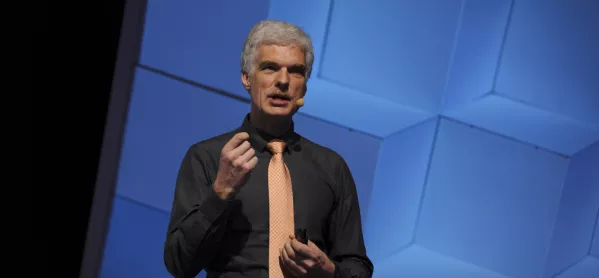Pisa head offers Pirls (and Timss) of wisdom

A good performance by England’s schools in a major set of global test results being published next week would actually be a “worrying” sign for the country, an international education expert from Programme for International Student Assessment (Pisa) has warned.
Many teachers and educationalists will be hoping that England has continued its recent excellent performances in the Trends in International Mathematics and Science Study (Timss) and recovered lost ground in the Progress in International Reading Literacy Study (Pirls), when the latest results are released on Tuesday.
Good results will be viewed by many as a vindication of schools’ hard work and a refutation of claims that standards of education in England have slipped.
But Andreas Schleicher, the Organisation for Economic Cooperation and Development (OECD) official who runs the rival Pisa survey, argues that the opposite is true.
He told TES that the crucial point is that Pisa - which suggests a recent decline in England’s international standing - tests children at an older age than Timss and Pirls. Mr Schleicher claimed that a good performance from England in the latter two tests, after its fall from grace in Pisa, would therefore suggest that the performance of pupils is actually deteriorating as they progress through school.
“If you put the three surveys together - I don’t think you can strictly compare them, but if you sort of use them as approximations - in my view it makes the picture a lot more worrying,” he said. “Because the message you get is that the earlier the year in school that you test kids in the UK, the better the performance internationally.
“In other words, parents and society do a great job in children getting to school but then year after year the schools system adds less value than we see across (other) countries.”
Mr Schleicher has been described by education secretary Michael Gove as one the most important people in world education. His latest comments will provide a fillip to those, like Mr Gove, who insist that radical changes to England’s schools are essential.
“It is probably true that the UK system is actually quite good in primary education, in the early years, but then afterwards it peters out - you can see the high dropout, you can see the 14-18 problem and so on,” Mr Schleicher said. “If you look at the three surveys together you don’t get a very encouraging picture. It is a more worrying picture than if you look at them one by one.”
Timss and Pirls test primary pupils - aged 10 - in England. But Timss also tests 14-year-olds, only a year younger than the 15-year-olds tested under Pisa.
John Bangs, a consultant for Educational International, a global grouping of teaching unions, said: “I agree that these surveys do dovetail into each other. If there is a disjuncture between Timss, Pirls and Pisa then (Mr Schleicher’s) point that this is worrying is absolutely right.”
Other commentators have argued that England’s impressive performance in Timss in 2007 (see panel, right) contradicts the apparent Pisa slump, which has been used by ministers to justify controversial reforms.
The government has often pointed to England’s fall in Pisa rankings between 2000 and 2009 from seventh to 25th in reading, eighth to 27th in mathematics and fourth to 16th in science. But its case was damaged this autumn when the government’s own statistics watchdog, the UK Statistics Authority, criticised the use of such figures, noting that the OECD, which runs Pisa, no longer views England’s 2000 results as statistically valid. Mr Schleicher admitted to TES that the figures were “a little bit dodgy”.
Where in the world?
England’s rankings in the Timss survey carried out in 2007 and published in 2008:
7th out of 36 nations in primary maths, compared with 10th out of 25 in 2003.
7th out of 49 in the maths test for 14-year-olds, up from 18th out of 46 in 2003.
7th out of 36 in primary science, down from 5th out of 25, despite a slight improvement in test scores.
5th out of 49 in the science test for 14-year-olds, up from 7th out of 46 in 2003.
Under the last Pirls survey (carried out in 2006 and published in 2007), England finished 19th out of 55 jurisdictions in primary reading compared with third in 2001.
Want to keep up with the latest education news and opinion? Follow TES on Twitter and like TES on Facebook
Keep reading for just £1 per month
You've reached your limit of free articles this month. Subscribe for £1 per month for three months and get:
- Unlimited access to all Tes magazine content
- Exclusive subscriber-only stories
- Award-winning email newsletters



